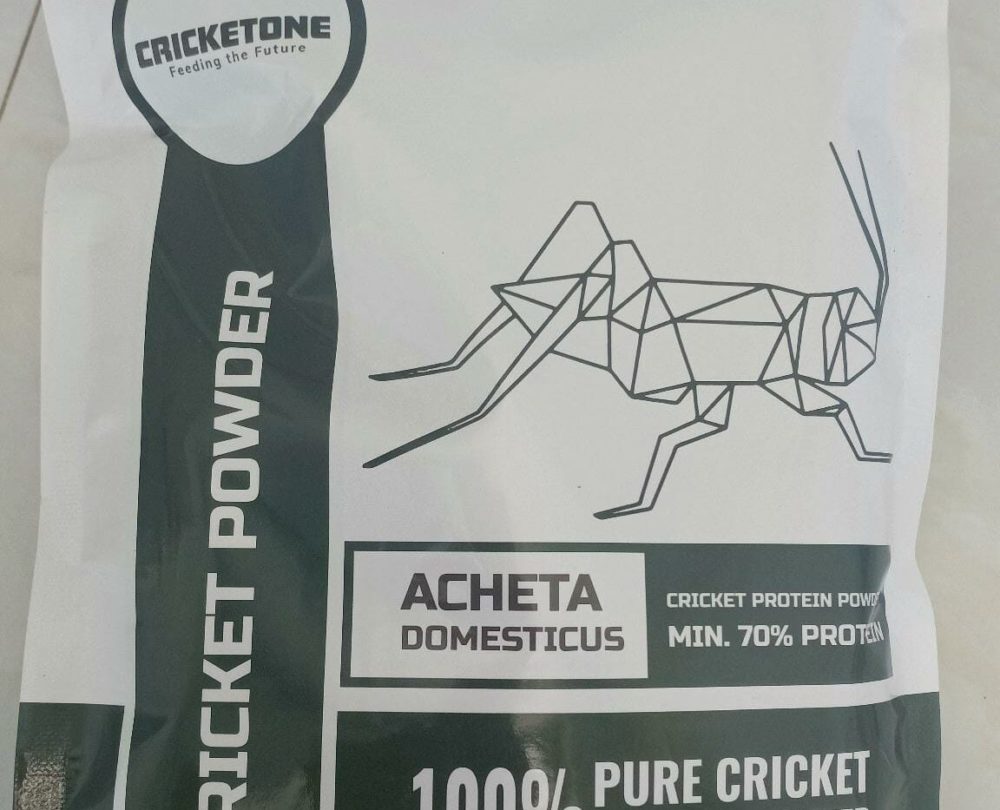Cricket One has closed a seed financing round, co-led by global venture firm 500 Startups and Singapore-based Masik Enterprise, AFN can reveal. The Vietnam-based startup, which farms crickets as a high-protein food source, did not disclose the size of the deal. With the injection of funds, Cricket One will collaborate with research institutions as it branches out into ‘transforming’ the insects into ingredients for cosmetics and pharmaceuticals.
“New products, such as sausage and mayonnaise made of cricket protein and oil, and a full range of protein beverages out of soluble cricket powder are currently in trials in Vietnam, Russia and Korea; and frass [insect excrement] as organic fertilizer,” says Nam Dang, the company’s founder, in an exclusive interview with AFN.
Snapshot: About Cricket One’s seed round
|
Cricket One’s flagship product, a 60%-70% protein and 7% fiber cricket powder, is already being sold to bakeries and snack makers in 10 countries, including the US and Europe. Dang says he is focusing on building distributors in key markets.
Comments by lead investor Masik Enterprises’ investment director hint at the cricket farmer taking on the likes of Impossible Foods, namely its source crop. Mikhail Zeldovich wrote in the press release “cultivating crickets is almost 50 times more productive than growing soybeans for the famous Impossible Burger. The tailwind for such a product is massive.”
“Now VCs have to compete to make investments…’
Dang tells AFN it took “roughly two months” to raise the round and that there is “lots of capital in Southeast Asia.”
Dang’s comments echo sentiments by Malaysia’s cricket farmer Ento, which also closed a seed round recently. Check out our exclusive interview with its founder, Kevin Wu, here.
“In the past, startups had to compete for capital, but now VCs have to compete to make investments. In a typical demo day at an accelerator, there are about six startups pitching to hundreds of investors from Vietnam, Singapore, Malaysia, Korea, Japan, Hong Kong,” he said adding that the company might not need to raise additional capital after this. “We have passed the break-even point and the business is self-sustainable. Unless there is a massive increase in demand meaning we need a huge capital injection for facility expansion, we can scale-up organically after this round.”
Getting over the ‘Yuck’ factor
Breaking down the nutritional value of its cricket powder, Dang says it beats orange juice by leaps and bounds: it contains five times the antioxidants as the breakfast staple. In addition to protein, cricket powder is a full nutritional package, delivering high quantities of calcium, potassium, zinc, iron, copper, manganese and prebiotic fiber. It doesn’t end there, though. The pulverized insect powder is also low in cholesterol and contains almost no carbohydrates. With this scorecard, it seems like it has the makings of a superfood.
It also ticks sustainability boxes well. Dang says that with just two liters of water and 1.5 kg of feed needed to produce 1 kg of edible weight, the cricket is an “order of magnitude more environmentally-friendly source of protein than beef or chicken.”
Sounds good. But what’s stopping its product from flying off the shelves?
“The yuck factor is the main challenge of this business, especially in the west where the consumption of insects is exotic. However, the consumers looking for health benefits and functions as well as sustainability are most likely to use crickets as food,” Dang explained. “To grow this industry, we need to serve this customer segment well, educate the market, and develop new applications out of insects.” Despite this, Dang remains confident more consumers and companies will hop on the cricket powder train.
“More than 2 billion people are consuming crickets. It’s not a new sector. Across the world, crickets are farmed in the US, Canada, Mexico, Thailand, and Vietnam. More players are entering the market. It’s a good signal of a dynamic market.”
We’ve mapped out the reason why insect-based protein is sprouting wings in Asia. Check it out, here.





